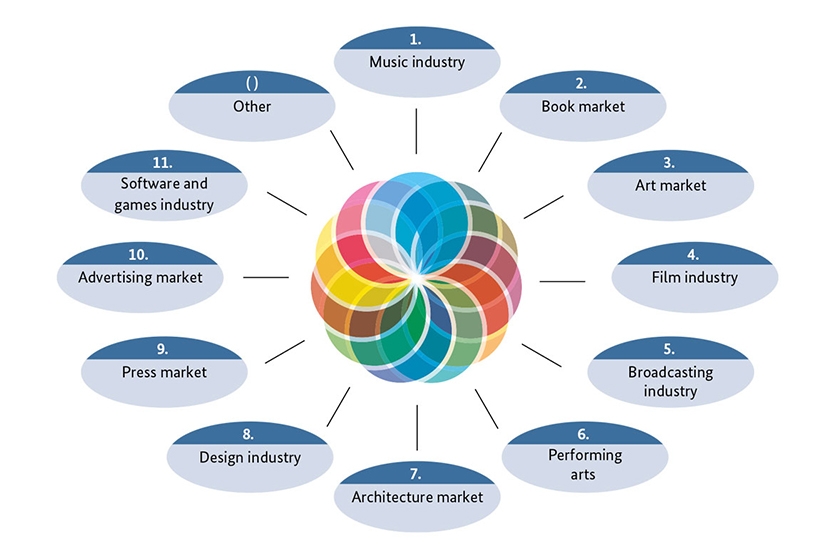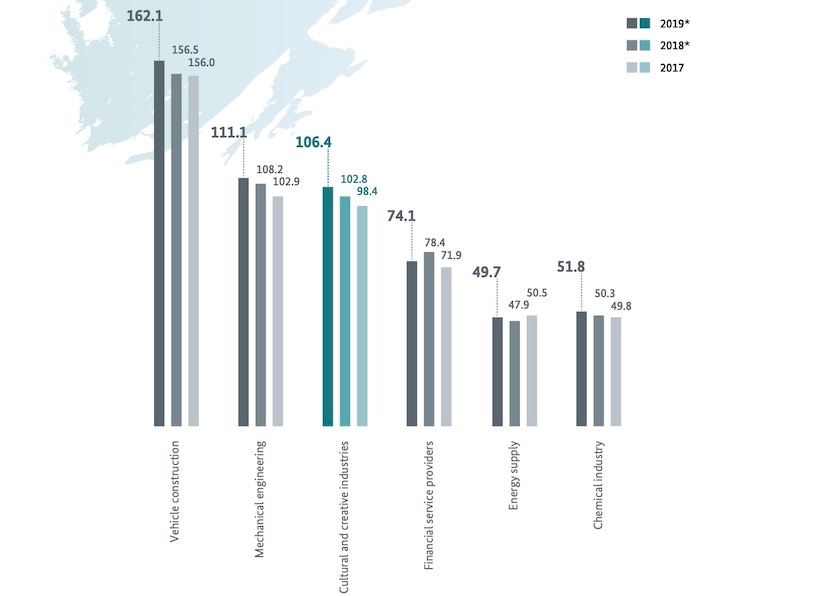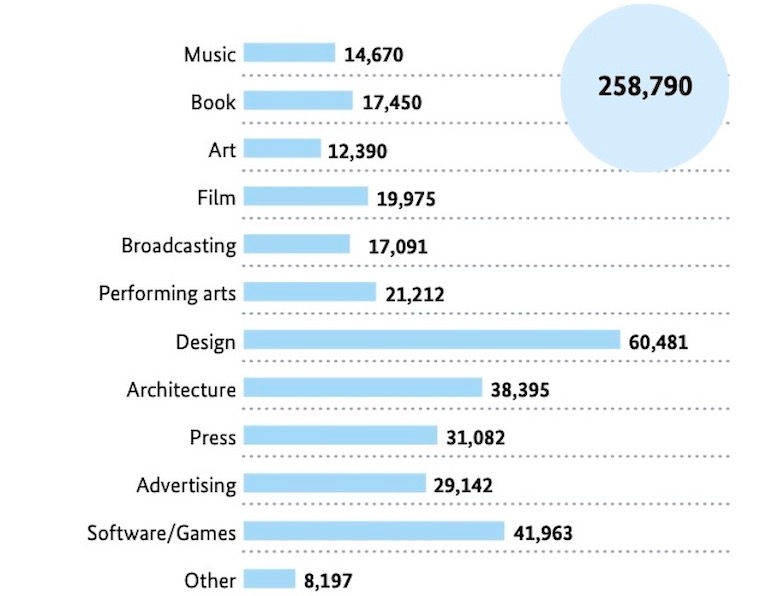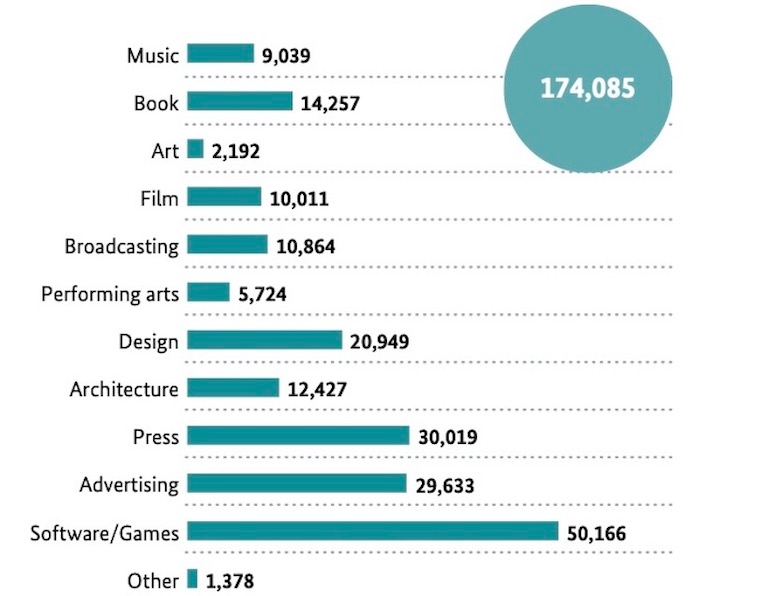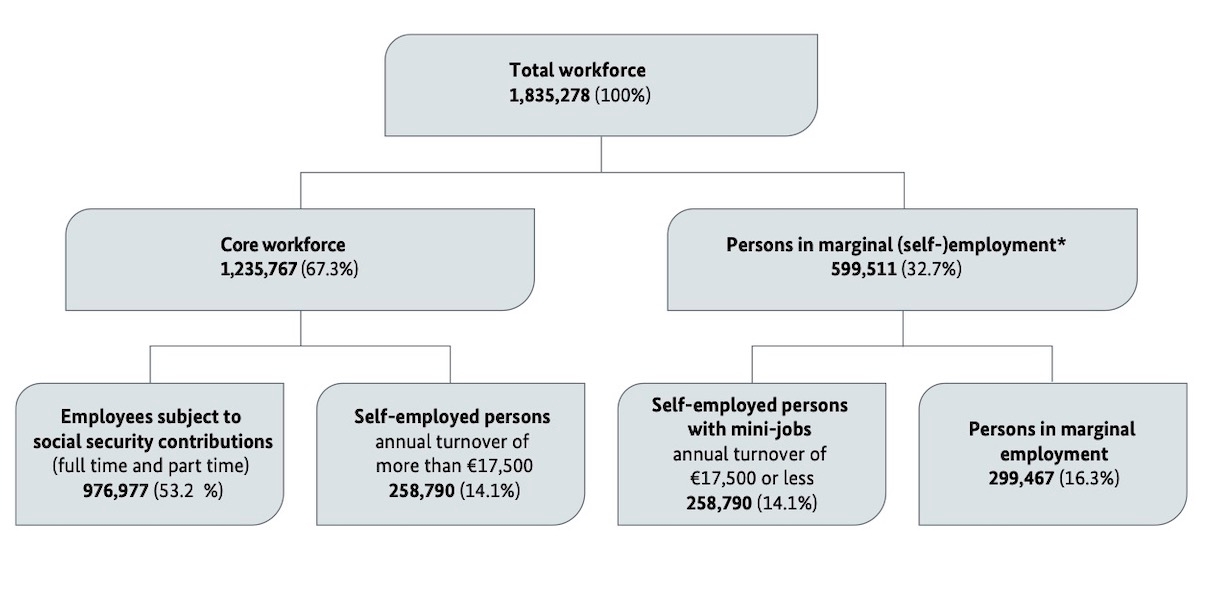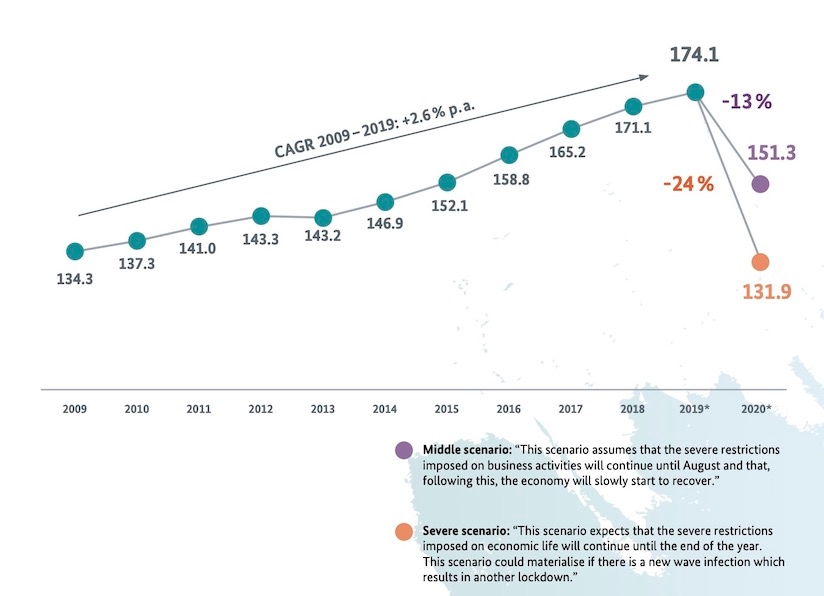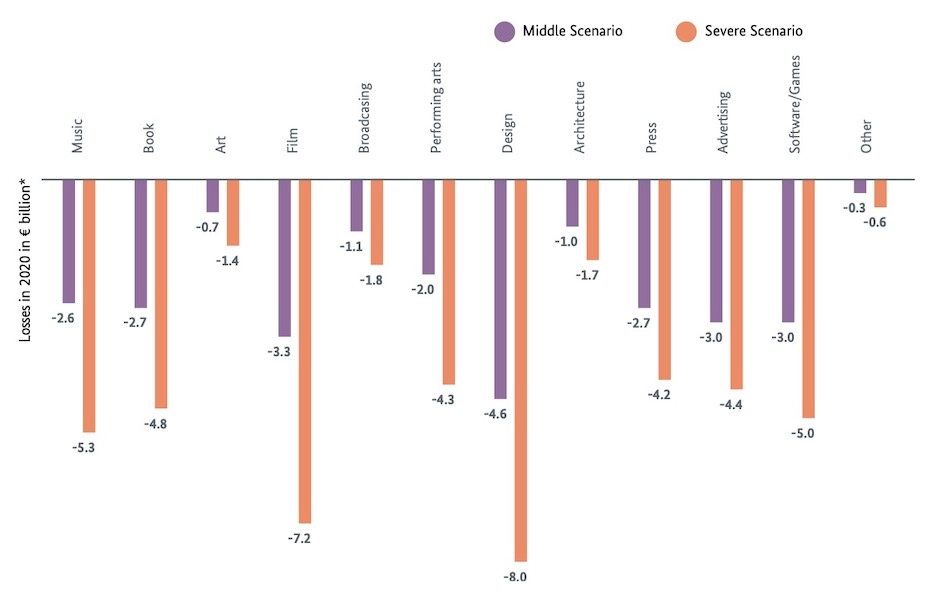The cultural and creative industries comprise all cultural and creative enterprises that mostly work for profit and produce and/or disseminate cultural or creative products and services. The definition does not cover companies, institutions or associations that rely on public-sector financing.
As part of its Cultural and Creative Industries Initiative, the German government publishes an annual Monitoring Report (PDF, 11 MB) keeping track of the latest changes in the industry.
According to the latest Monitoring Report, there were more than 1.2 million people working in the cultural and creative industries (as their main occupation), of which 258,000 were freelancers and commercial entrepreneurs and 976,977 employees subject to social-security contributions. The total number of people working in the industry, including those working in the sector as a sideline occupation, was higher than 1.8 million. Turnover in the cultural and creative industries grew by approx. €40 billion between 2009 and 2019, reaching a total of €174.1 billion in 2019. This corresponds to an average annual growth rate of 2.6%.
Due to the Covid-19 pandemic, this positive trend will not continue. Significant revenue losses are expected to have been made in 2020. The submarkets of the cultural and creative industries have been affected to varying degrees by the Covid-19 pandemic: whilst high losses are expected for the performing arts, film, arts and music, in particular, other submarkets such as architecture, press and software/games are likely to be much more resilient.




